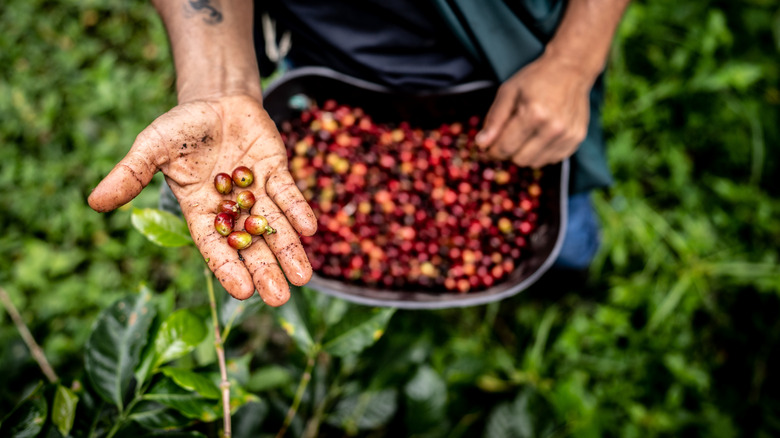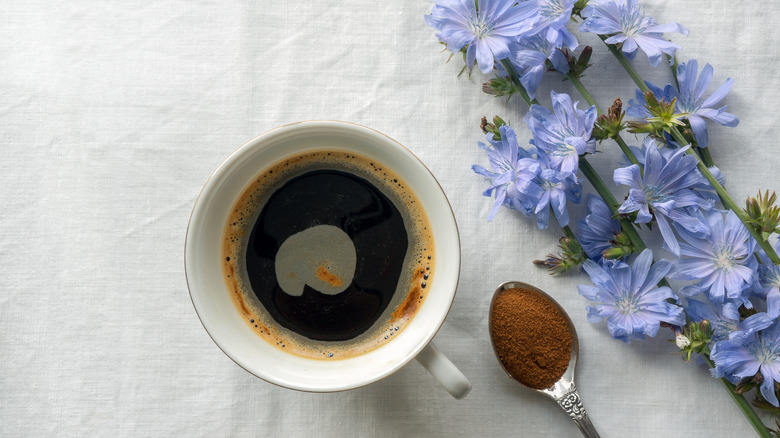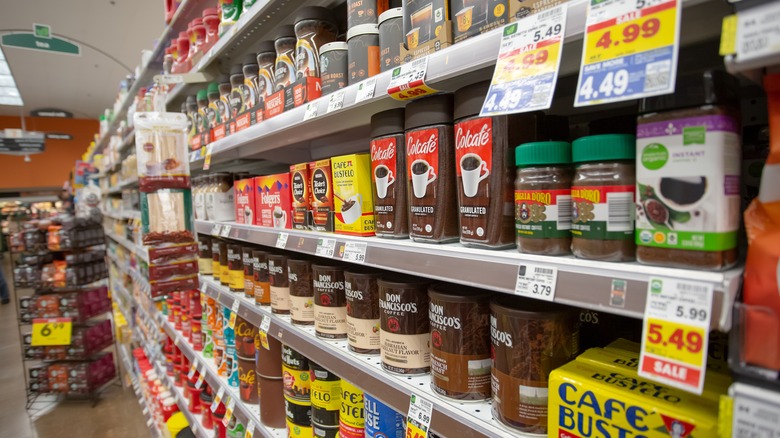Why Coffee-Bean Alternatives May Soon Be Inevitable
Coffee is a cornerstone of culture and cuisine across the globe, to the point it's difficult to imagine a world without it. The world runs on coffee of all brands, origins, and roasts. From commuters who chug a cup of joe to power themselves through their mornings to cafe campers who nurse their frothy, caffeinated craft beverages while working off free WiFi, people enjoy coffee in many ways around the world.
However, with the looming impacts of global climate change, a coffee-less world is on the verge of becoming a reality. Coffee crops require specific tropical environments to prosper, with conditions including shade, moderate rainfall, and temperatures from 64 to 70 degrees Fahrenheit. These conditions could once be found in regions throughout the globe, like South America, Africa, and Southeast Asia. However, human activities like fossil fuel-burning and deforestation have caused (and continue to cause) these once fertile regions to become less suitable for coffee crops.
A 'coffee'-fueled future may hinge on coffee alternatives
Climate change is already having an effect on the global coffee industry. Many climate models predict that the land viable for coffee-growing will be cut in half by 2050, making coffee harder to come by and more expensive. Whether it is a great premium roast or a cheap blend in need of an upgrade, that daily cup is at risk of becoming unattainable for many.
With the dwindling amount of land viable for cultivating coffee, consumers may have to start getting acquainted with alternatives. Luckily, coffee-like beverages already exist. With ingredients ranging from chickpeas to chicory root, many companies are brewing beverages that closely resemble the source material in flavor and appearance but do not require the increasingly elusive coffee bean to produce.
Some of these beverages lack the caffeine many coffee drinkers seek, but others offer a bit of a hit. Mushroom coffee, for instance, is made from a mix of mushroom extracts and coffee, and it contains about half as much caffeine per cup as a standard dark roast coffee. Chicory coffee, which is made entirely from chicory root, contains no caffeine.
A heated world turning coffee into a hot commodity
Though companies are continuing to innovate and develop robust coffee alternatives, the idea of life without the real deal is an undeniably hard pill to swallow. However, it may soon become a life most people can afford. As TIME explains, "declining supplies and a growing coffee-drinking population mean climate change could turn a daily pick-me-up into a high-priced luxury, threatening the continued growth of the industry's customer base." Though some coffee alternatives may now seem pricey compared to the regular coffee, the evolving supply may eventually make these alternatives the more affordable choice.
The modern world we inhabit would not exist without coffee. For centuries, coffee has been a pillar of society and all its daily activities. During the Enlightenment, coffee houses hosted heated debates and ideological exchanges between some of history's most significant political figures. Coffee fueled workers throughout the Industrial Revolution into the Information Age. The beverage was seminal in forming our society as we know it, in a number of ways. But ironically that cup of get-up-and-go that helped build it may not survive us at the production scale we've grown accustomed to.


